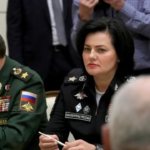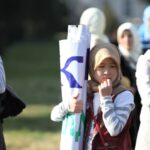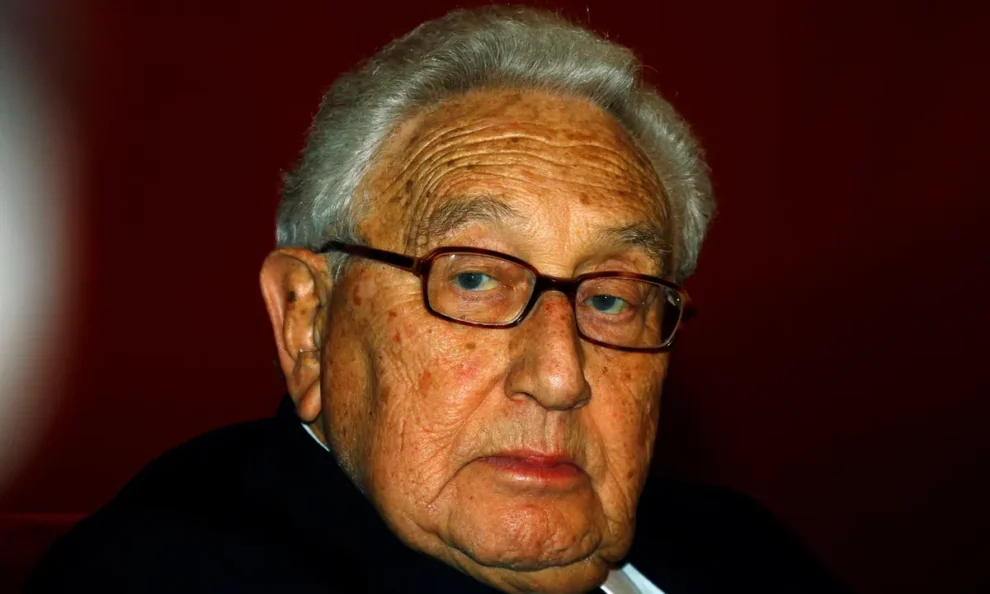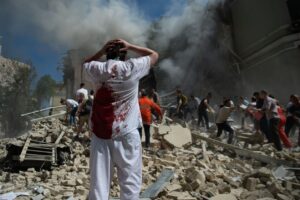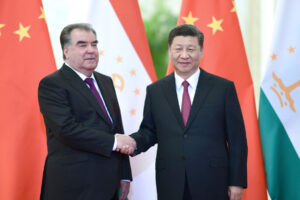Henry Kissinger’s death has brought out some bitter epitaphs from Latin America where the legacy of US intervention helped saddle the region with some of the most brutal military regimes of the 20th century.
Nowhere has been the reaction been more damning than in Chile, where Kissinger was instrumental in the 1973 coup that led to the death of a democratically elected socialist president, Salvador Allende and the installation of a dictator, Gen Augusto Pinochet, and his military junta.
Kissinger was a man “whose historical brilliance was never able to conceal his profound moral wretchedness”, wrote Juan Gabriel Valdés, Chile’s ambassador in the US, on X, formerly Twitter.
The coup was seen a major victory by Richard Nixon’s White House, but it marked the start of 17 years of autocracy in Chile.
“Henry Kissinger was an incredibly important figure in the breakdown of Chile’s constitutional order,” said the historian Gabriel Salazar. “He provoked the downfall of [Allende’s] developmental policies, and then the installation of the neoliberal economic model which is still in place today – that’s why we associate Kissinger with Pinochet here in Chile.”
Kissinger’s influence in Latin America spread far beyond Chile. He played a role in Operation Condor, which linked the military regimes in an intelligence-sharing network to hunt down leftwing dissidents.
“Henry Kissinger did not believe in the sanctity of self-determination. He didn’t believe in the sanctity of sovereignty for Latin American nations or the smaller nations of the third world. He believed in superpower might makes right – realpolitik,” said Peter Kornbluh, senior analyst at the National Security Archive (NSA) in Washington DC, which pressured the US government into declassifying Kissinger’s voluminous records. The veteran statesman did not want them made public until five years after his death.
“He didn’t believe in the sanctity of human rights either, which led him to embrace repressive authoritarian regimes as strategic chess pieces in the global chessboard of the cold war,” Kornbluh added.
“Latin America was – for the arrogant policymakers of whom Kissinger was the top dog – our backyard. If we did not have control of what happened in our sphere of influence, Kissinger’s argument went, the rest of the world would not take our exercise of power seriously further away.”
Myriam Bregman, a lawyer in Argentina’s ongoing human rights trials and a candidate for the leftwing FIT party (Leftist and Workers Front) during Argentina’s presidential elections this year, described Kissinger’s legacy as “tragic”.
“Encouraging coups d’état in the region, justifying them, being aware that these coups implied a genocide against workers and students,” she said.
“His trip to Argentina during the 1978 World Cup leaves no doubt regarding his support for these dictatorships,” said Miriam Lewin, a survivor of the ESMA death camp that was close by the River stadium where Kissinger attended matches. “I could hear the cheering when goals were scored, from inside the concentration camp.”
Kissinger even boycotted efforts during Jimmy Carter’s 1977-81 pro-human rights presidency to stop the killing in Argentina. In secret meetings with the dictator Jorge Videla and top Argentinian diplomats during the 1978 World Cup games in Buenos Aires, Kissinger said that “in his opinion the government of Argentina had done an outstanding job in wiping out terrorist forces”.
In answer to a question about Videla during one of the World Cup matches, Kissinger said: “He’s a very intelligent, very dedicated man who is doing what is best for his country.”
The files published by the NSA make clear Kissinger’s central role in the Chilean coup. In 1970, he warned Nixon that Chile could become the “worst failure” of his administration, and that it might develop into “our Cuba” without US intervention. He chaired the committee that oversaw CIA operations to undermine the Allende government.
“I don’t see why we need to stand by and watch a country go communist due to the irresponsibility of its people,” he said. “The issues are much too important for the Chilean voters to be left to decide for themselves.”
Having failed to prevent his election, Kissinger became desperate to avoid Allende’s ratification of his presidential win. Days before the vote, President Nixon met with a rightwing Chilean media mogul, Agustín Edwards, owner of the conservative El Mercurio media group, to discuss blocking Allende’s path to the presidency.
They hatched a plan that involved the kidnap of Gen René Schneider, the then head of the Chilean armed forces, who was considered loyal to the constitution. The attempt was botched and Gen Schneider died three days later of the gunshot wounds he sustained when his car was ambushed on 22 October 1970.
The following day Kissinger dismissed the Chilean armed forces as a “pretty incompetent bunch”. Eventually however, the military did step in, using jets to bombard the presidential residence, where Allende died, apparently by suicide. Many of the soldiers involved in the putsch had been paid by the CIA.
El Mercurio, Edwards’s conservative daily which was closely linked to Kissinger in that period, announced the death on Thursday of a “key figure in 20th-century global diplomacy” on its front page. It did not mention his legacy in Chile.
Source: The Guardian





